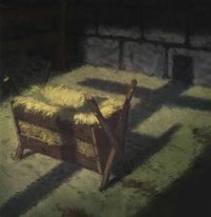In the Book of Daniel, King Nebuchadnezzar referred to Daniel by an interesting title: the chief of the magicians (Dan 4.9). You may be familiar with the story: around 600 BC Nebuchadnezzar conquered Judea as part of his campaign to stake claim to the former Assyrian empire. His objective was to impose Babylonian dominion over what remained of Israel a vassal state. In doing so, the Babylonian army pillaged Jerusalem and its temple, and took Jehoiakim, the last king of Judah, along with 10,000 of the best and brightest Jews into Babylon, in which Daniel was among them.

Nebuchadnezzar ordered some of the Israelites from the royal family and the nobility into his court’s service. He found Daniel to be among the best of the bests, the brightest of the brightests—having possessed extraordinary insight and intelligence, and wisdom and a keen mind and knowledge and understanding, and also the ability to interpret dreams, explain riddles and solve difficult problems—thus, he appointed Daniel the chief over all his magicians, enchanters, astrologers and diviners (Dan 1.6; 5.11-12). In essence, Daniel was in charge of all the wisest of men of Babylon, i.e., the magi (see Mat 2.1).
Even when Darius the Mede (Dan 5.32) and Cyrus II the Persian (Dan 1.21; 6.28; 10.1; Ezr 1.1) succeeded Babylon as the dominant powers, Daniel continued to serve in their courts. It was during this time Daniel received the vison of the coming “beasts,” those nations that would rise up following Babylon (Dan 7-8), studied the writings of Jeremiah (Dan 9.2; Jer 29.10) which foretold the return from exile after 70 years, and the vision of the forthcoming of the Son of Man—the divine-human judge, the Messiah—487 years after the return from exile to vindicate and liberate God’s people, and to punish the wicked (Dan 7; 9-12). So, for the greater part of his time in exile, Daniel educated and trained all the wisest men of Babylon. Throughout the centuries these wise men coronated and counseled their kings—they were in fact the kingmakers.
In 538 BC when Cyrus II gave the Jews permission to return to Jerusalem, only approximately 42,000 of the Jews returned to their homeland, whereas millions of the Jews, including Daniel, who was too old to make the journey, chose to remain in Persia (2Ch 36.22-23; Ezr 1.1-8). During this time, this Persian diaspora was the largest Jewish community outside of Judah. This contingency of Jews maintained their cultural and religious identity into the first century. And just as the Jews in Palestine were looking forward to the coming of the Messiah (see Luk 2.25), there were no doubt some Persian Jews who did likewise.
It is, therefore, my hypothesis that the magi who followed the star and came to celebrate the birth of Jesus were indeed Jewish descendants of those who remained in exile. They weren’t just some random pagan astrologers from the East who saw the star and followed it out of curiosity. Rather, they continued the tradition that Daniel had instituted through studying the Scriptures for signs and calculating the timing for the coming of the Messiah (Dan 9.25-26). It was during the course of their studying and seeking that they observed the Christmas star as it was foretold in Numbers 24.17. They journeyed to Palestine and found the Christ-Child (now around age 2) precisely because they were looking for him. And they came prepared to coronate him as the King of the Jews, and more importantly, the King of their hearts (Mat 2.2).
So, on this Christmas Day as you read the familiar Christmas story, when you come to these mysterious magi, take a moment to reflect who they were, and may you also find Christ the King and crown him to be the King of your heart.
